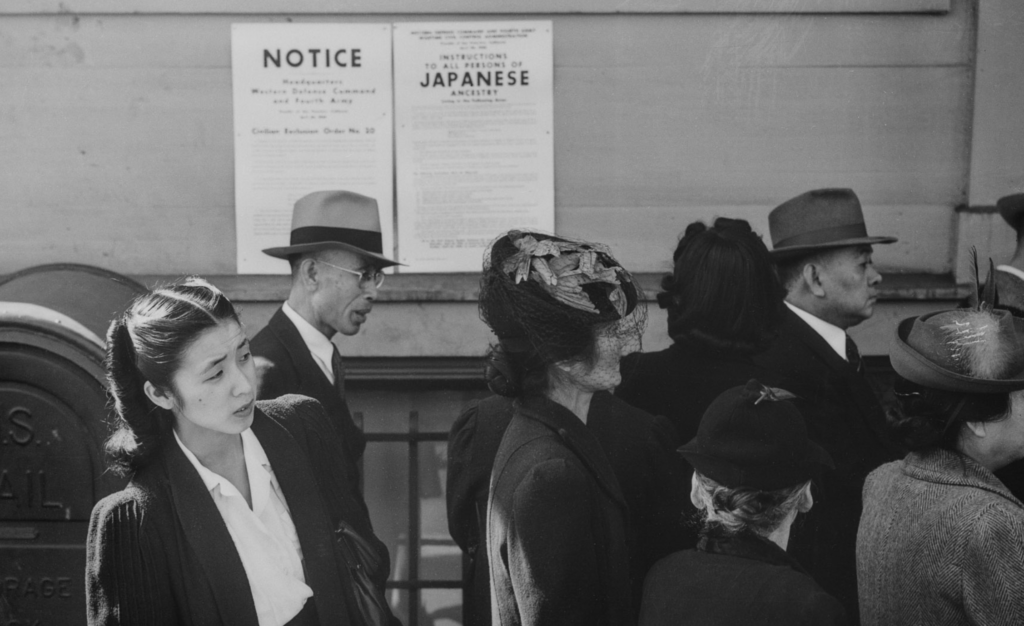
A sociologist friend and I were talking about how deeply entrenched it is for people to think in terms of in- and out-groups (Us v. Them), and he joked that the only thing that could unite humanity was an attack from outer space. And there’s something to that—in rhetoric, it’s sometimes called “unification through a common enemy.” The rhetoric scholar Kenneth Burke, in 1939, published an article in which he pointed out that that was one of Hitler’s strategies for uniting Germans. It’s how a lot of families function—everyone is mad at each other until they can agree how much they hate Aunt Agnes. I’ve seen fractious departments unify against an upper administrator. Churchill unified a deeply divided country when its existence was threatened by Nazism—his speeches continually spoke to a common, shared identity, and a common effort (FDR was much the same).
Those four examples show that the impulses that cause us to unite in our shared division can range from the trivial (the family dislikes the aunt, the department dislikes the Dean) to somewhat more important (if the Aunt is trying to defraud the family or the dean is trying to defund the department) to the very existence being threatened (as in the case of the UK). But what of the missing fourth example—Germany?
Germany is a strange case, because many Germans felt deeply threatened by various things— a world economic collapse that threatened large numbers of people with poverty and unemployment. Many Germans also felt threatened by the secularization of education, losses of privilege, modernization of various kinds, and their sense of group was esteem was threatened by the disastrous outcome of the Great War. But their existence wasn’t threatened; their prestige as a nation was, but not their existence as a nation.
But they became persuaded it was. The irony, of course, was that this belief in existential threat was a self-fulfilling prophecy. Germans, persuaded that the Reichstag Fire demonstrated an existential threat, put in power a leader and party that would, actually, lead to the extermination of Germany as a nation, and the extermination of between five and eight million Germans (with about 500,000 killed as part of the racial and political purification programs).
Athens, in the fifth century BCE, was facing an existential threat in the form of the Spartans. Instead of uniting as a city-state to fight that threat, they were more concerned with the existential threat to their faction, to the possibility that the other faction might exterminate them, and so focused their energy on exterminating the other. And they lost the war to Sparta.
What I’m saying is that the existential threat doesn’t have to be real for it to be really effective at unifying, and having a real existential threat doesn’t necessarily unify. What makes the difference is the rhetoric of the leadership.
Churchill and FDR responded to existential threat with a rhetoric that tried to unify the entire country, even the political parties that had recently been their worst critics. Both had opposition members in their cabinets. Both listened to people who disagreed (Kershaw’s Fateful Choices describes their decision-making processes, and how much they relied on thoughtful attention to the opposition, elegantly.) FDR and Churchill used the existential threat to transcend factionalism. Hitler and the demagogues of Athens manufactured or used the existential threat in order to amplify the factionalism, to equate opposition groups and critics with the external threat, and thereby enable elimination of fellow citizens. Instead of trying to unify a people, their goal was purification through extermination of the opposition.
In a way, COVID-19 is the external threat my sociologist friend joked about. It could be the moment of unification, a moment when we transcend factional disagreement in order to unify against this disease. It could be that moment if political leadership decides to make it that.
Promoting unity is hard, and nobody does it perfectly, but some do it better than others. FDR allowed a rhetoric of internal purification to lead to massive race-based imprisonment, and Churchill treated India as only sort of unified with the UK (enemy enough for mass starvation). But they were better than Hitler or the Athenian demagogues, and they resisted even more extreme forms of internal purification.
We’re in a culture of demagoguery, in which every issue is not just us v. them, but treated as a zero-sum war of existential threat between us and them. Someone saying “Happy Holidays” threatens Christians with extermination because it’s part of the “war on Christmas.” Requiring vaccines is a war on liberty. Trying to reduce poverty is a war. Treating every issue as a war means treating people who disagree with our policy agenda as traitors. That’s a bad idea.
We do have a common enemy in the form of COVID-19; we need a leadership that enables us to transcend our differences to work together. The last thing we need is a leader who exacerbates internal animosity, who openly tries to exterminate dissent, who has a fragile ego that has to be stroked, who refuses to listen to anyone who disagrees, and who is now openly toying with exterminating democracy itself. We need someone even better than FDR, not someone even worse than Cleon.

 In 1942, after years of fear-mongering about “the Japanese,” the US was seriously considering race-based mass imprisonment of legal aliens and citizens of Japanese ethnicity. The Tolan Committee was formed by a progressive Congressman to have
In 1942, after years of fear-mongering about “the Japanese,” the US was seriously considering race-based mass imprisonment of legal aliens and citizens of Japanese ethnicity. The Tolan Committee was formed by a progressive Congressman to have 










